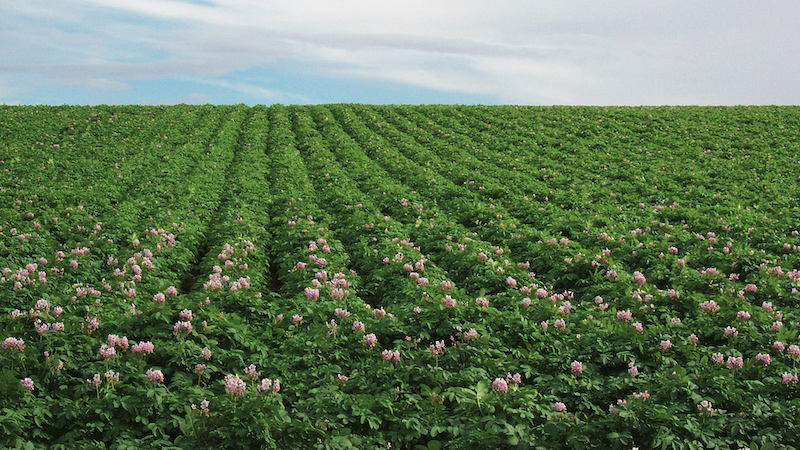Produce Growers Need To Look at the Big Picture: With Hunger There Is No Peace
Food doesn’t get the respect it deserves in this country, at least from those of us who aren’t necessarily foodies. No, I mean food as in sustenance, as in worrying about where your next meal is coming from. According to USDA, food insecurity affected 17.3% of households with children in 2022. Think of that — 6.4 million households with kids — and that’s in the richest large country in the world. The hunger story is much bleaker of course in many other places. We all see it in TV advertisements for organizations fighting hunger, but not so much in the news. When it happens every day, it’s no longer deemed newsworthy, and that’s part of the problem. You can’t see hunger, so it’s easy to forget for most of us who don’t have to worry about where our next meal is coming from.
The news today is dominated by coverage of the wars in Ukraine and (pending at press time) the Middle East. It’s difficult to watch, as you feel so powerless, wanting to do something, anything, so you can help. But I have some badly needed good news for you: If you’re a grower, you’re already helping, if only in some small way.
I was reminded of this fact in late October when a group of former World Food Prize Laureates met in Iowa for the “Borlaug Dialogue” to present and discuss a joint written statement on the role of food and nutrition security in addressing the rise of conflict around the world. Their statement opens with the following line: “In a world of rising conflict, we must cultivate the fields to grow peace.”
The laureates’ statement goes on to say, “At times like this it is easy to focus mostly on ‘cultivating justice’ — diplomacy, resolution of grievances and humanitarian needs — and to ignore the imperative to ‘cultivate the fields’ by investing in food and nutrition security. But as Norman Borlaug said over 50 years ago, we must do both at the same time because each reinforces the other.”
Certainly, there’s no direct connection between growing fruit in the U.S. and world peace, but that’s not the point. Almost all food production helps, no matter the form. The laureates’ statement is clear on this.
“Hunger is caused by a lack of three things: food, income, and peace. In turn, hunger is a breeding ground for further conflict by burying hope and stoking desperation,” they state. “Hunger and conflict are inextricably linked, just as food and nutrition security are with peace.”
The event in Iowa is named in honor of 1970 Nobel Peace Prize Winner Norman Borlaug for his tremendous leaps in wheat breeding, which earned him the moniker “Father of the Green Revolution.” Borlaug, one of my personal heroes, is credited with preventing untold millions of deaths from starvation.
Sure, there are no fruit growers who will be credited for preventing starvation. But in this world of strife, there is some solace found in producing food. To be honest, I feel better knowing I am affiliated with such a noble cause. Coincidentally, today I was honored by my company, Meister Media Worldwide, for a quarter century of service.
I had just seen a report on the World Food Prize Laureates, and it got me thinking about my job interview back then, and the long-gone editor who interviewed me, informing me of the company’s motto with pride: “To be the trusted partner empowering the business of global agriculture to grow a better world.”
That still makes me feel good. If you need a boost, consider this from Borlaug in his 1970 Nobel Peace Prize Lecture: “If you desire peace, cultivate justice, but at the same time cultivate the fields to produce more bread; otherwise, there will be no peace.”









